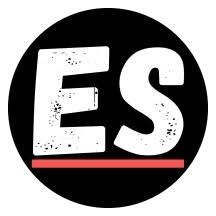
By Leika Kihara
TOKYO (Reuters) -Japanese authorities are facing renewed pressure to combat a decline in the yen, driven in part by market bets that dovish new premier Sanae Takaichi will pile pressure on the central bank to go slow in raising interest rates.
A weak yen boosts exports but hurts households and retailers by inflating already rising import costs for fuel and food. The dollar has climbed about 5% against the yen since Takaichi won the ruling party's leadership race on October 4. It stood around 155 yen on Tuesday.
Here are possible steps the government and the central bank could take:
ESCALATE VERBAL INTERVENTION - HIGHLY LIKELY
Authorities have recently said they are watching currency rates with a "high sense of urgency" as the yen has been making "one-sided, sharp" moves.
Finance Minister Satsuki Katayama escalated that tone on Tuesday, saying authorities were "alarmed" over the yen's volatile moves. Last week, she acknowledged that the disadvantages of a weak yen may be more pronounced than its advantages.
Analysts say that if the yen makes a sustained break below 155 per dollar and approaches the psychologically important 160 mark, authorities may warn they are ready to take "decisive action" against excessive moves - a sign yen-buying intervention could be nearing.
AUTHORITIES SIGNAL CHANCE OF NEAR-TERM RATE HIKE - POSSIBLE
After ending a decade-long, massive stimulus last year, the BOJ has raised interest rates twice, the last time to 0.5% in January. It has stood pat since then. The slow pace of policy normalisation has helped keep the yen on a downtrend.
If the administration's worries about the demerits of a weak yen grow, Takaichi may signal a more conciliatory stance toward an increase in the BOJ's policy rate to 0.75%.
BOJ officials could also lay the groundwork for a near-term rate hike through speeches. BOJ board member Junko Koeda will deliver one on November 20 and board member Asahi Noguchi on November 27. Governor Kazuo Ueda will deliver a speech on December 1.
BOJ RAISES INTEREST RATES - POSSIBLE
Ueda last month dropped unusually strong signals of a rate hike in December or January next year. While unsuccessful, two board members proposed raising rates in September and October, underscoring growing momentum for a near-term hike.
The yen may get some respite if the BOJ meets market expectations and hikes rates either in December or January. But the rebound could prove short-lived if Ueda signals that any further rate increases could be slow to come.
JAPAN INTERVENES IN CURRENCY MARKET - HIGHLY UNLIKELY
Japan last intervened in the currency market in July 2024 when the yen fell to a 38-year low of around 161.96 to the dollar. The BOJ also raised interest rates to 0.25% that month, causing the yen to strengthen to around 150 per dollar.
Such concerted action highlighted the concern then-premier Fumio Kishida had about a weak yen. Takaichi and her reflationist aides have been less vocal in their concern over the currency's slide.
Though their approach could change if the yen slides to near 160, the hurdle for intervention could be higher. The weak yen is a reflection of Japan's deeply negative real interest rate, making it hard for Tokyo to make the case that the currency's falls are out of step with fundamentals.
Getting Washington's blessing may also be tough as U.S. Treasury Secretary Scott Bessent has repeatedly signalled that rate hikes are the best way to prop up the yen.
(Reporting by Leika Kihara; Additional reporting by Makiko Yamazaki; Editing by Edwina Gibbs)

 Reuters US Economy
Reuters US Economy
 US Magazine
US Magazine The Daily Beast
The Daily Beast NPR
NPR Salon
Salon CNN Business
CNN Business Blaze Media
Blaze Media The Babylon Bee
The Babylon Bee Essentiallysports Tennis
Essentiallysports Tennis